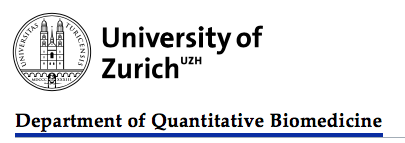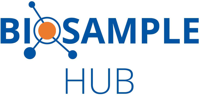Projects using PATH Biobank
Since 2008, PATH has supported more than 20 scientific projects, providing samples (tissue and/or serum) as well as the corresponding pseudonymized data. Some of these projects exclusively use datasets provided by PATH Biobank. Below, we present recent research projects and the scientific partners who implemented them. Former projects are listed as well.
A list of publications, lectures, poster presentations and additional scientific output having been developed using PATH Biobank’s samples, can be downloaded here: research projects - publications.

Scientific partner: Prof. Bernd Bodenmiller, Johanna Wagner, Sandra Tietscher – Department of Quantitative Biomedicine, University of Zurich
Prof. Bodenmiller's research group at the Department of Quantitative Biomedicine at the University of Zurich has been working with samples from the PATH Biobank since 2013. The working title for the first cooperation was: "Analyzing human breast tumor heterogeneity and macrophage infiltrates and their relevance for patient outcomes by mass cytometry".
For these investigations, the so-called mass cytometry technique is used, which Prof. Bodenmiller co-developed as a postdoctoral fellow at Stanford University and has since successfully developed further. This method is similar to flow cytometry. Individual cells are labelled with antibodies and analysed. The special feature is that up to 100 "characteristics" (so-called biomarkers) of a single cell can be investigated simultaneously. This is enabled by the use of metal isotope-coupled antibodies.
The investigations have already resulted in a scientific publication in the journal Cell, which bears the title: „A Single-Cell Atlas of the Tumor and Immune Ecosystem of Human Breast Cancer“.
![]()
Scientific partner: Dr. Michael Oed and Dr. Mark Laible - BioNTech AG
In 2016 the mRNA expression of ESR1/ER, PGR/PR, ERBB2/HER2 and MKI67/Ki67 was investigated using RT-qPCR on so-called "curls" of 322 FFPE samples. Including the detailed follow-up data a Kaplan Meier analysis could be carried out. It was shown that after a median follow-up time of 7.8 years, the women from the group with "Luminal A-like" tumors reported significantly more distant metastasis-free survival compared to the women whose tumors were grouped differently, these were predominantly "Luminal B-like" tumors.
In summary, it could be shown that women whose disease was classified as "Luminal A-like" by RT-qPCR suffered much less distant metastasis in the 10-year period after diagnosis.






